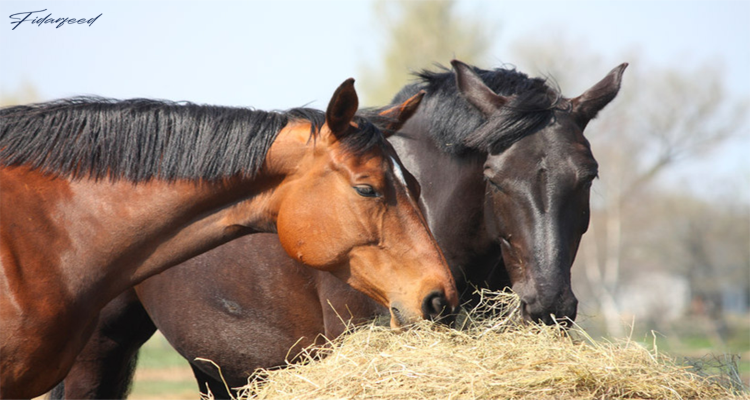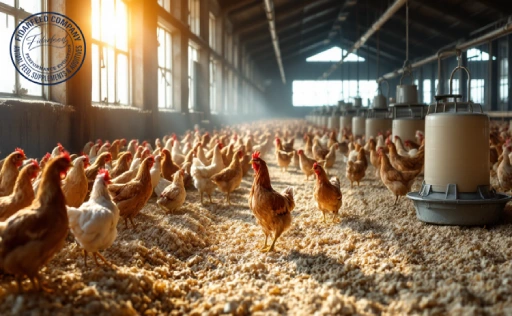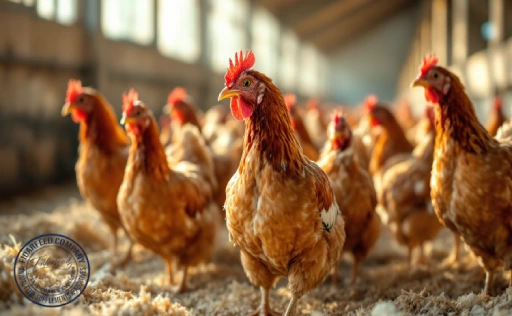How to Reduce Your Horse’s Stress with Optimal Nutrition isn’t just a catchy phrase—it’s a real, practical strategy that every horse breeder and caregiver should understand. Just like humans, horses are deeply affected by what they eat. Whether you’re managing a stable of sport horses, breeding mares, or caring for a beloved companion, stress can sneak into your horse’s life and silently impact everything from behavior to immune response. The good news? Nutrition plays a major role in managing stress and boosting overall health. In this article, we’ll break down exactly how to use smart feeding choices to improve your horse’s well-being—both mentally and physically. Let’s get started.
Why Nutrition Matters: The Link Between Diet and Equine Stress
Nutrition isn’t just about calories and weight—it’s about balance. Horses are highly sensitive animals. Their digestive system, energy levels, and mental state are all deeply influenced by the feed they consume.
Learn more about: Probiotic Supplement for Horses and foals
For instance, high-starch diets can make horses more anxious or jittery, especially those kept in stalls or in limited turnout. Research has shown that feeding practices that spike blood sugar can contribute to stress-related behaviors like cribbing, weaving, or aggressive temperament.
Understanding this connection is the first step toward creating a calmer, healthier horse. Feed isn’t just fuel—it’s medicine, too.
How to Reduce Your Horse’s Stress with Optimal Nutrition: The Basics
So, what does “optimal nutrition” really mean?
It starts with consistency. Horses are creatures of habit, and sudden feed changes can upset their stomach—and their mood. A balanced diet should include:
-
Adequate fiber from forage (at least 1.5% of body weight daily)
-
A controlled amount of concentrates for energy (especially for working horses)
-
Access to clean, fresh water at all times
-
Mineral and vitamin supplementation tailored to need
Learn more about: The Ultimate Guide to Healthy Horse Feeding
Keep it simple. A well-balanced diet helps regulate hormones and supports gut function, both of which are essential for reducing stress.
Signs Your Horse Is Stressed and What Diet Has to Do With It
Stress in horses isn’t always obvious. Sometimes, it shows up as restlessness or loss of appetite. Other times, it takes the form of weight loss, frequent colic episodes, or behavioral issues.
Diet plays a role in both triggering and alleviating these symptoms. For example:
-
Insufficient fiber can cause gastric ulcers.
-
Irregular feeding schedules can create anxiety.
-
Nutrient imbalances can affect the nervous system.
Learn more about: The Ultimate Guide: How to Treat Gingivitis in Horses and Prevent Recurrence
Keeping an eye on behavioral cues and linking them with dietary habits is a powerful tool for horse breeders and caretakers.
The Role of Vitamins and Minerals in Managing Equine Anxiety
Certain nutrients have a calming effect on horses—and they’re essential in any stress-reducing diet.
Magnesium, for example, is known for its ability to support nerve function and muscle relaxation. Horses low in magnesium may appear tense, spooky, or reactive.
B-vitamins, particularly B1 (thiamine), help in energy metabolism and are often depleted during times of stress. Supplementation can improve focus and reduce nervousness.
Selenium and Vitamin E support the immune system, which can be weakened when a horse is chronically stressed.
Make sure your feed or supplement program includes these vital elements—but always avoid overdosing, as excessive minerals can also be harmful.
Choosing the Right Forage to Reduce Stress in Horses
Forage is the foundation of every horse’s diet—and its quality and consistency matter greatly.
High-quality hay that is free from mold, dust, or weeds provides not only essential fiber for digestion but also a sense of security for horses. Grazing and chewing help lower cortisol levels and promote a calm state.
Learn more about: The Hidden Stress in Horses: How Human Actions Affect Welfare
Horses that are deprived of constant access to forage often show signs of stress like wood-chewing or pacing. Ideally, forage should be available throughout the day to mimic natural grazing behavior.
How Feeding Schedules Can Influence Your Horse’s Mental State
Imagine eating breakfast at 7 AM one day and 11 AM the next. That would be unsettling—and horses feel the same.
Feeding your horse on a consistent schedule helps regulate their internal clock, reducing anxiety and digestive issues. Divide meals into smaller, more frequent portions rather than large, infrequent ones.
Learn more about: Choosing the Right Horse Breed for Breeding: A Comprehensive Guide
Additionally, avoid making abrupt changes to feeding routines. Any diet change should be introduced gradually over 7–10 days to avoid gastrointestinal stress.

Probiotics and Gut Health: A Key to Reducing Equine Stress
A healthy gut is a calm gut—and a calm gut leads to a calmer horse.
Probiotics support the balance of beneficial bacteria in the digestive tract, improving nutrient absorption and reducing the risk of colic or diarrhea—both of which can be stress-inducing. Research in equine gut health shows that maintaining microbial balance reduces stress-related behaviors and improves mood.
Adding a high-quality probiotic supplement can be especially beneficial during times of transition—like travel, weaning, or competition.
Avoiding Feed-Related Triggers: What Not to Give a Stressed Horse
Some feeds can do more harm than good. If your horse is already prone to anxiety or digestive issues, steer clear of:
-
High-sugar feeds (molasses-heavy concentrates)
-
Large meals of grain-based rations
-
Excess starch, especially for horses on stall rest
-
Poor-quality hay or silage that may contain toxins or mold
Always check feed labels and consult a nutritionist when selecting commercial products to avoid ingredients that may worsen behavioral issues.

How to Create a Customized Stress-Reducing Diet Plan for Your Horse
Every horse is unique. A young performance horse has different needs than an older broodmare or a retired gelding.
When creating a diet plan, consider:
-
Age and weight
-
Workload and exercise levels
-
Stress factors (travel, new environment, training demands)
-
Health history
Learn more about: Best Feed for Young Horses: Nutrition Tips for Healthy Growth and Development
Start with forage, then build on it with targeted supplements and concentrates. Monitor your horse’s behavior and body condition regularly to make fine-tuned adjustments.
Supporting Long-Term Horse Health by Combining Nutrition with Good Management
Nutrition is powerful—but it’s not the only factor.
Combine it with:
-
Daily turnout and movement to prevent restlessness
-
A calm, consistent environment to reduce external stress
-
Social contact with other horses, when possible
-
Routine vet and dental checks to ensure comfort
The goal is a holistic approach—where what your horse eats supports how they feel, act, and perform in everyday life.
Conclusion
In the world of horse care, understanding how to reduce your horse’s stress with optimal nutrition is a game changer. With the right feed, the correct schedule, and a balanced approach to supplementation, you can help your horse stay calm, healthy, and ready for whatever comes next. A stress-free horse is not only easier to manage—it also enjoys better health, improved performance, and a stronger bond with its handler.
We hope this guide has given you valuable insights into how nutrition can be a powerful tool for supporting your horse’s mental and physical well-being. Have questions or experiences to share? We’d love to hear from you in the comments!








